Year 5
The English curriculum is built around the three interrelated strands of language, literature and literacy. Teaching and learning programs should balance and integrate all three strands. Together, the strands focus on developing students' knowledge, understanding and skills in listening, reading, viewing, speaking, writing and creating. Learning in English builds on concepts, skills and processes developed in earlier years, and teachers will revisit and strengthen these as needed.
In Years 5 and 6, students communicate with peers and teachers from other classes and schools, community members, and individuals and groups, in a range of face-to-face and online/virtual environments.
Students engage with a variety of texts for enjoyment. They listen to, read, view, interpret and evaluate spoken, written and multimodal texts in which the primary purpose is aesthetic, as well as texts designed to inform and persuade. These include various types of media texts including newspapers, film and digital texts, junior and early adolescent novels, poetry, non-fiction and dramatic performances.
The range of literary texts for Foundation to Year 10 comprises Australian literature, including the oral narrative traditions of Aboriginal and Torres Strait Islander Peoples, as well as the contemporary literature of these two cultural groups, and classic and contemporary world literature, including texts from and about Asia.
Literary texts that support and extend students in Years 5 and 6 as independent readers describe complex sequences, a range of non-stereotypical characters and elaborated events including flashbacks and shifts in time. These texts explore themes of interpersonal relationships and ethical dilemmas within real-world and fantasy settings. Informative texts supply technical and content information about a wide range of topics of interest as well as topics being studied in other areas of the curriculum. Text structures include chapters, headings and subheadings, tables of contents, indexes and glossaries. Language features include complex sentences, unfamiliar technical vocabulary, figurative language, and information presented in various types of graphics.
Students create a range of imaginative, informative and persuasive types of texts including narratives, procedures, performances, reports, reviews, explanations and discussions.
(source: www.australiancurriculum.edu.au)
Achievement Standard
Receptive modes (listening, reading and viewing)
By the end of Year 5, students explain how text structures assist in understanding the text. They understand how language features, images and vocabulary influence interpretations of characters, settings and events.
When reading, they encounter and decode unfamiliar words using phonic, grammatical, semantic and contextual knowledge. They analyse and explain literal and implied information from a variety of texts. They describe how events, characters and settings in texts are depicted and explain their own responses to them. They listen and ask questions to clarify content.
Productive modes (speaking, writing and creating)
Students use language features to show how ideas can be extended. They develop and explain a point of view about a text, selecting information, ideas and images from a range of resources.
Students create imaginative, informative and persuasive texts for different purposes and audiences. They make presentations which include multimodal elements for defined purposes. They contribute actively to class and group discussions, taking into account other perspectives. When writing, they demonstrate understanding of grammar using a variety of sentence types. They select specific vocabulary and use accurate spelling and punctuation. They edit their work for cohesive structure and meaning.
(source: www.australiancurriculum.edu.au)
- Plus Plan
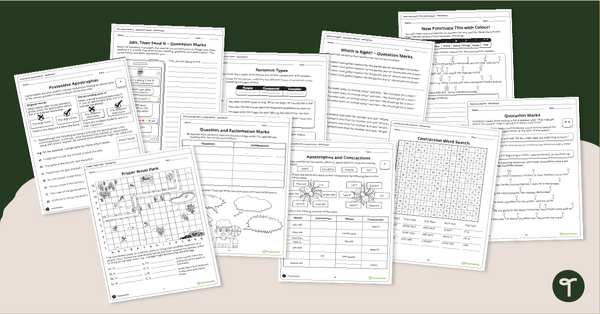
Perfect Punctuation Sheets – Booklet (3-5)
Use our Punctuation activity sheet booklet with 50 punctuation activities to practice a variety of grammar skills in the upper years classroom.
- Free Plan
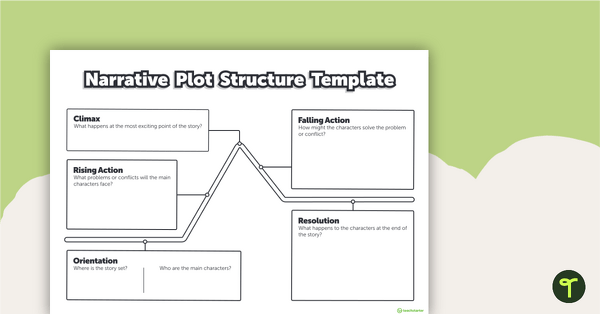
Narrative Plot Structure – Story Mountain Template
Use a story mountain template to help your students write narrative texts.
- Plus Plan
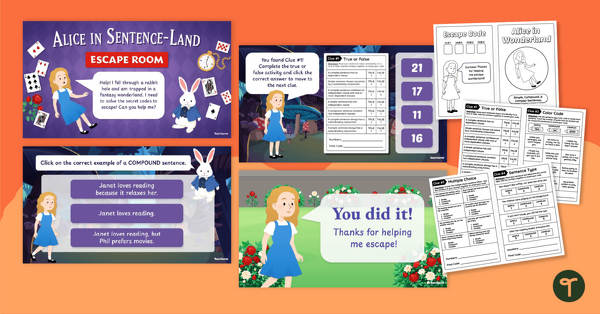
Alice in Wonderland Escape Room – Simple, Compound and Complex Sentences
Help Alice escape Sentence Land in this Alice in Wonderland Escape Room Game covering simple, compound and complex sentences.
- Free Plan
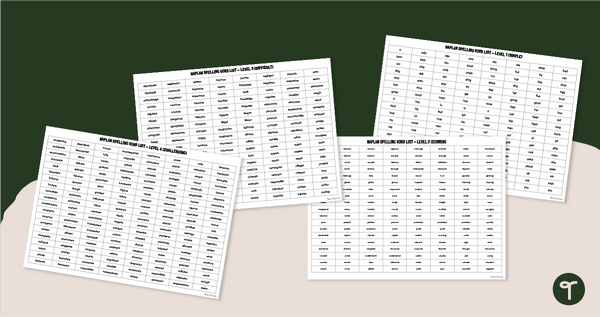
NAPLAN Spelling Reference List
Prepare your students for NAPLAN Language Conventions assessments with a printable NAPLAN Spelling Reference List.
- Plus Plan
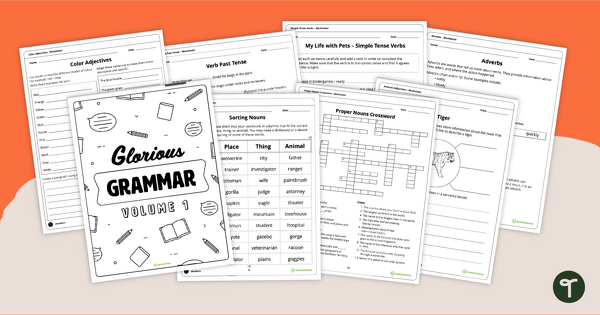
Glorious Grammar Volume 1 - Worksheet Book
50 activities in one booklet which all revolve around learning grammar in the classroom.
- Plus Plan
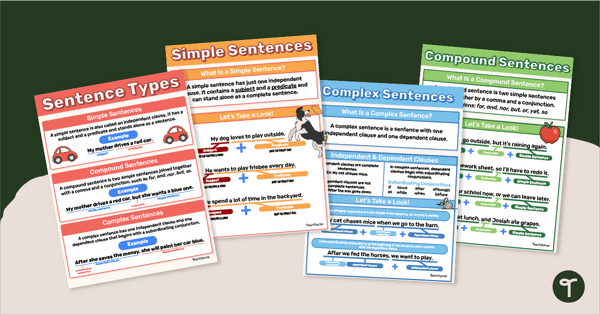
Simple, Compound and Complex Sentences Posters
Use these posters to show your students the attributes that make up simple, compound and complex sentences.
- Plus Plan
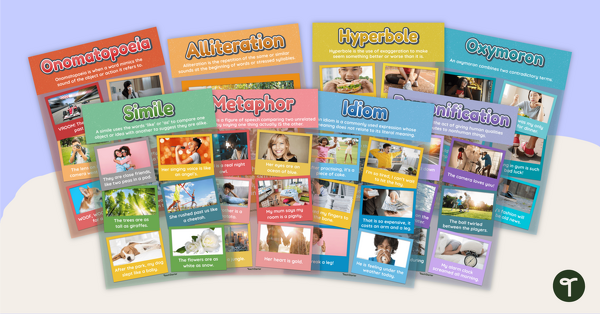
Figurative Language Poster Pack
Remind your students about the most common types of figurative language with this set of classroom display posters.
- Plus Plan
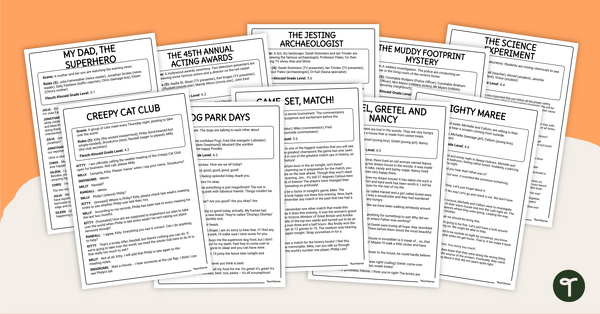
Scripts for Reader's Theatre – Year 5 and Year 6
Bring your literacy lessons to life with scripts for reader's theatre that boost student confidence and improve reading fluency.
- Plus Plan
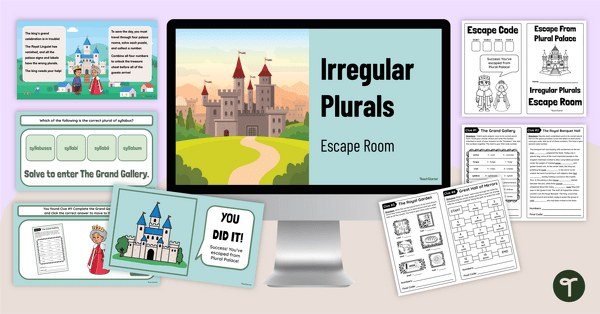
Irregular Plurals Escape Room
Teach irregular plurals with this engaging escape room game that helps teachers bring grammar lessons to life while keeping students motivated and excited to learn.
- Plus Plan
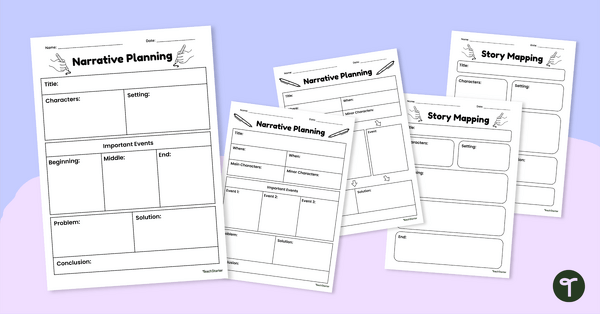
Narrative Writing Planning Template Pack
Use this narrative writing planning template pack to help your students plan a fantastic piece of writing!
- Plus Plan
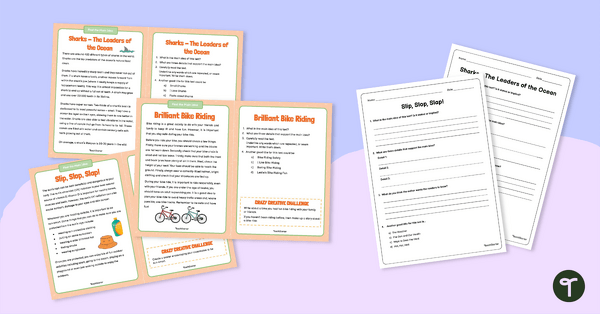
Comprehension Task Cards - Finding The Main Idea
A set of comprehension task cards to help students find the main idea when reading.
- Free Plan
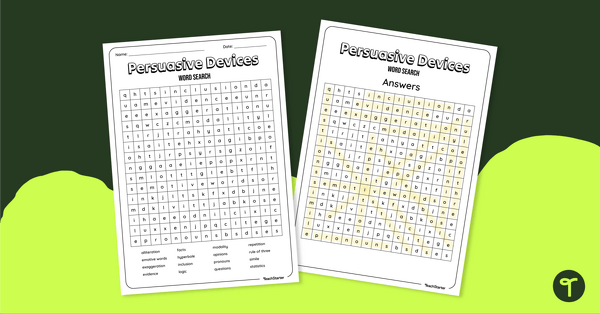
Persuasive Devices Word Search
Familiarise your students with the most common persuasive devices with a fun word search.
- Plus Plan
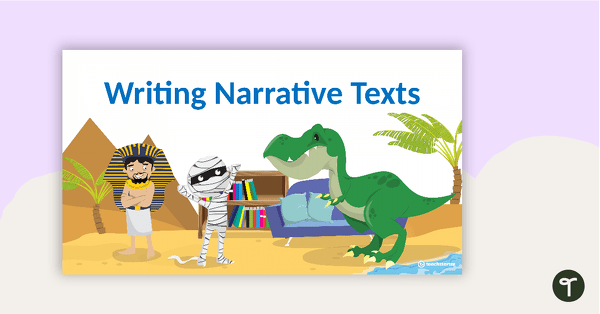
Writing Narrative Texts PowerPoint - Year 5 and Year 6
A 20 slide editable PowerPoint template to use when teaching your students about the structure and language features of narrative texts.
- Plus Plan
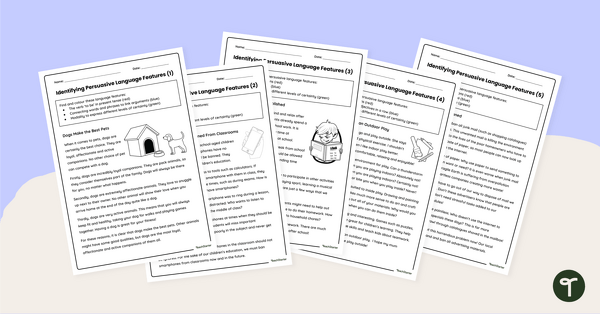
Identifying Persuasive Language Worksheets
Explore persuasive language with your students using this set of five persuasive texts on a variety of age-appropriate topics.
- Plus Plan
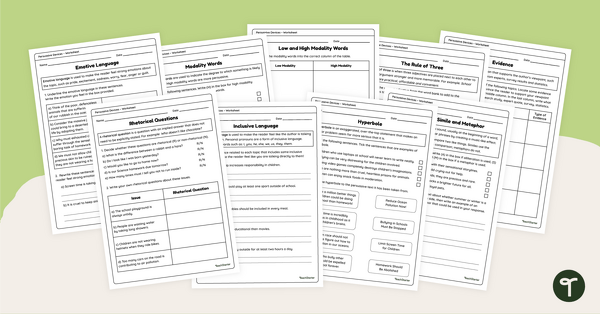
Persuasive Devices Worksheet Pack
Explore persuasive language techniques with your students using this nine-page worksheet pack perfect for your persuasive writing unit.
- Plus Plan
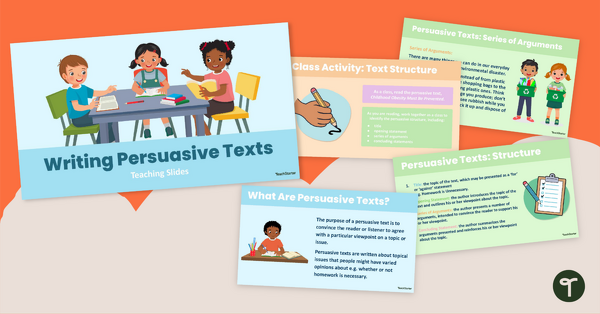
Writing Persuasive Texts PowerPoint - Year 5 and Year 6
Explore the structure and language features of persuasive texts with these teaching slides.
- Plus Plan
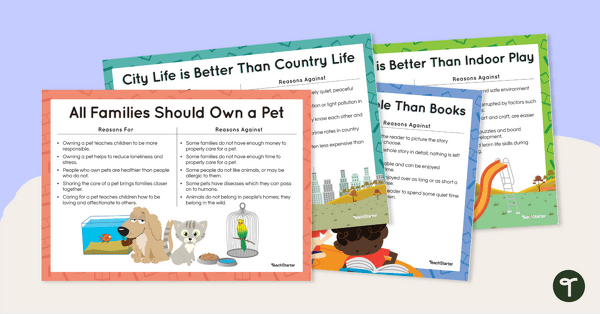
Persuasive Text Writing Prompts - Complete Set
A set of 5 persuasive writing prompts, covering a variety of topics.
- Plus Plan
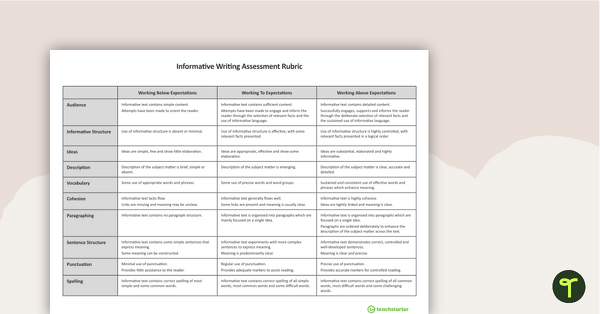
NAPLAN-Style Assessment Rubric - Informative Writing
A NAPLAN-style rubric designed to help teachers to assess students' informative writing.
- Free Plan
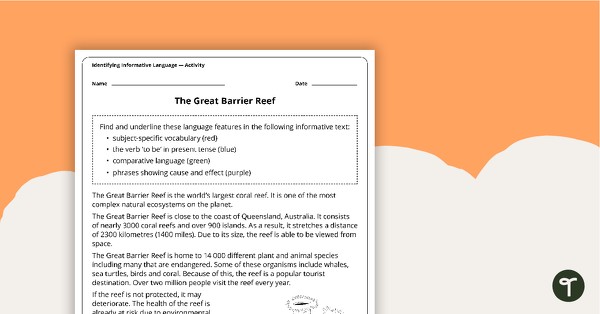
Identifying Informative Language Worksheets
Explore the types of language found in informative writing using this set of three information reports on a variety of age-appropriate topics.
- Free Plan
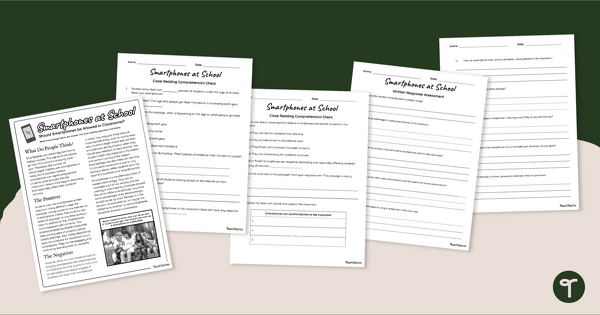
Comprehension - Should Smart Phones Be Allowed in Classrooms?
Decide if cellphones should be allowed in class and boost comprehension skills with a reading passage and comprehension test.
- Plus Plan
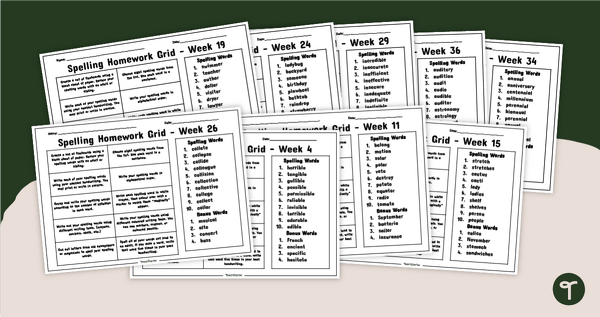
Year 5 Spelling Words Worksheets - Weekly Spelling Homework
Provide your students with engaging spelling homework activities with our no-prep Year 5 Spelling Words Worksheet pack.
- Plus Plan
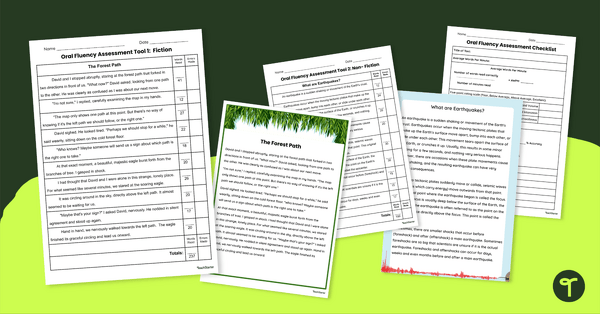
Fluency Assessment Tool
Use our fluency assessment tool to gauge your students’ oral reading fluency, speed, accuracy and more.
- Plus Plan
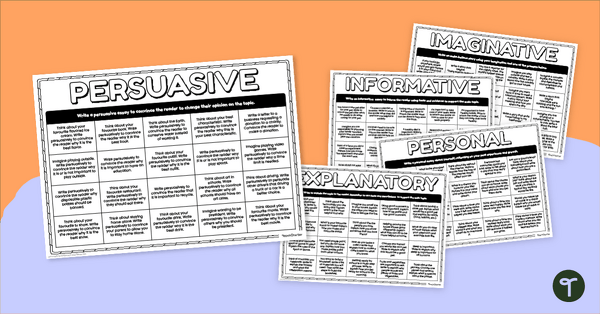
Genre of the Month - Writing Prompt Grids (Upper)
Introduce your students to a variety of writing genres with our printable genre-specific writing prompt grids.
- Free Plan
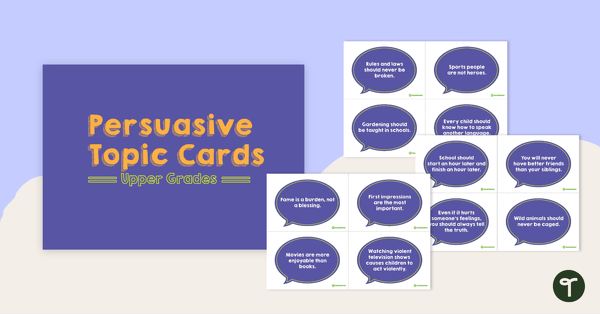
Persuasive Topic Cards - Upper Grades
A set of persuasive topic cards for upper primary.
- Plus Plan
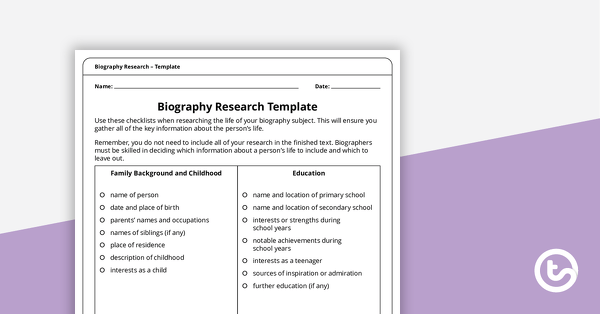
Biography Research Template
Provide students with this biography research template to help them gather key life details and take organised notes for writing a well-structured biography.
- Free Plan
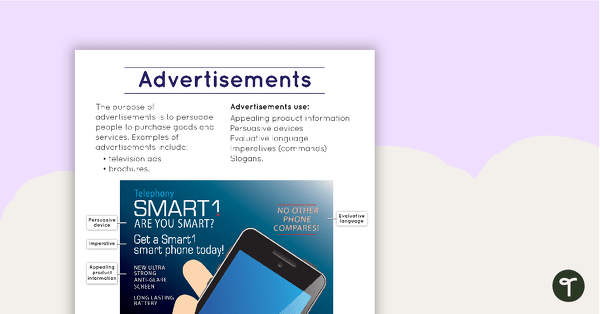
Advertisement Text Type Poster With Annotations
A poster about advertisements, including an annotated example.
- Free Plan
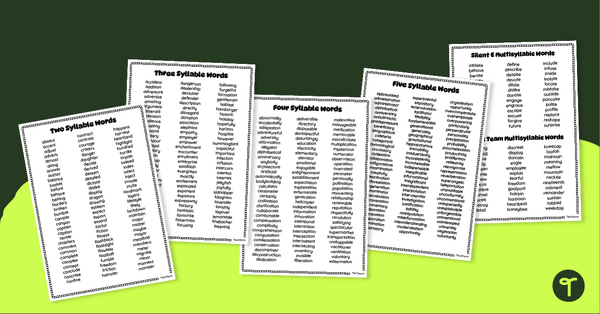
Multisyllabic Word List Resource Pack
Print and use a multisyllabic word list to introduce your students to more complex words and syllable patterns.
- Plus Plan
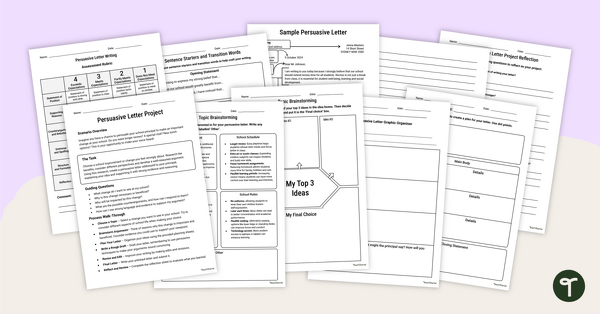
Write a Persuasive Letter Project
Help your students write a persuasive letter to their school principal with this engaging project that builds essential writing skills while making learning meaningful.
- Plus Plan
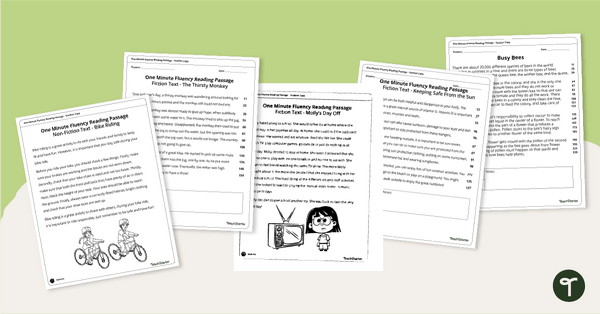
Fluency Reading Passages - Year 5
Assess student fluency with a printable pack of reading fluency passages for Year 5.
- Plus Plan
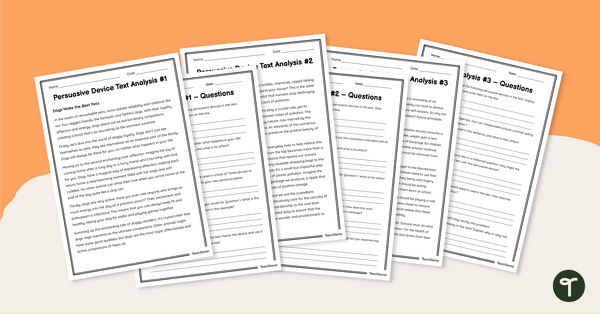
Analysing Persuasive Devices Worksheets
Get students analysing persuasive techniques and their effects on audiences with this set of three texts with accompanying questions.
- Plus Plan
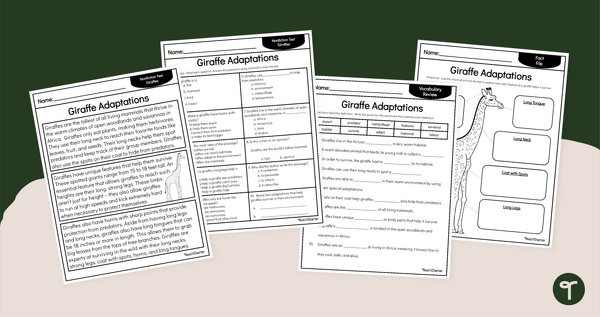
Giraffe Adaptations - Reading Comprehension Year 3
Read and learn about adaptations of the giraffe with a set of printable Year 3 comprehension activities.
- Free Plan
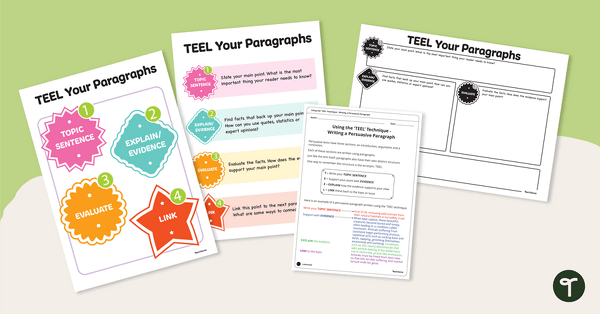
TEEL Paragraph Structure Poster and Worksheets
Explore the acronym TEEL to help with paragraph technique during persuasive writing lessons.